Listen Now:


Do You Overthink Everything?
Did I leave the oven on? Is he ever going to call me? What am I going to say to my boss during our important meeting tomorrow? Does she ever think about me? Why did I say something so stupid?
I know you have thought at least one of these things to the point of driving yourself crazy. And maybe you have tried to just stop thinking. Has it worked? Overthinking can lead to anxiety, stress, and frustration. Keep reading for tips on how to stop overthinking to improve your mental health.
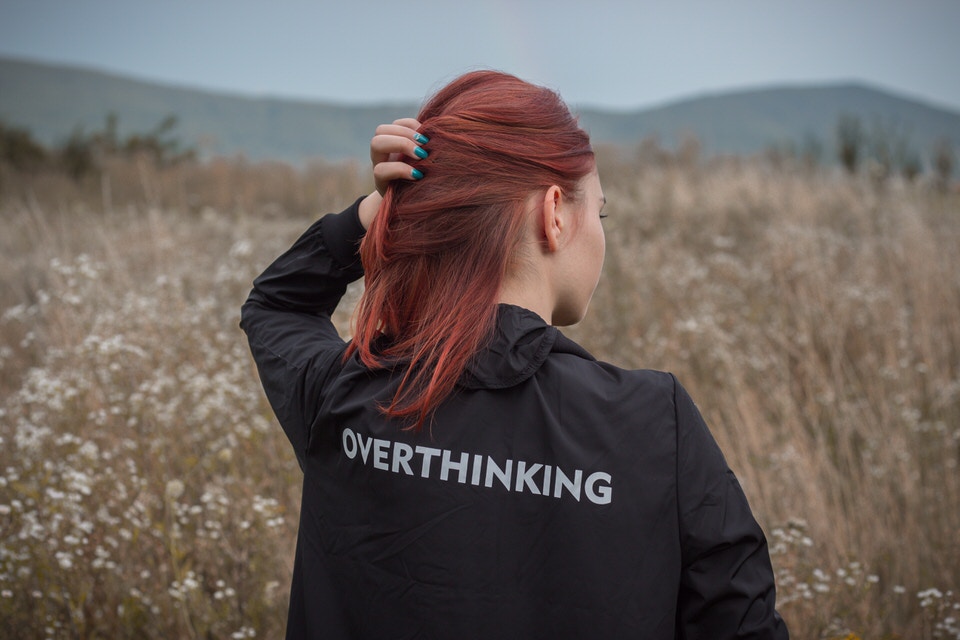
Why Do Humans Overthink?
Our ability to think about things that are not directly in front of our faces is incredible. But it can come to be harmful when we are constantly worrying, planning, predicting the future, rehashing the past, and stuck in our heads.
One of the things that sets us humans apart from other animals is our ability to think about complex things. Because of this, we are able to plan and project into the future, project into the past, and analyze and solve problems.
These are excellent and extremely helpful tools that are available to us. These methods of thinking are what have allowed us to be creative, invent new technology, and learn more about the world around us- to name a few things.
But is it ever possible to think too much? Can thinking ever become something that is more harmful than helpful? And is it possible to learn how to stop overthinking and relax?

The Brain Functions That Help You Think
Let’s take a look at the brain. The brain has evolved over time to become more complex.
The oldest part of the brain, otherwise known as the reptilian brain, is responsible for the basic functions of keeping us alive. These functions include breathing, heart rate, body temperature, and balance. These are the things that we have no awareness of, but are constantly happening in the background.
Now, let’s skip to the most evolved portion of the brain in humans. The prefrontal cortex is responsible for complex thinking, including decision-making, inhibitory control, and abstract thought.
These are the aspects of human behavior that allow us to reflect upon the world around us, think before we act, and plan for the future.
“Higher order executive functions require the simultaneous use of multiple basic executive functions and include planning and fluid intelligence (e.g., reasoning and problem solving).”
How Much Is Too Much Thinking?
It’s probably too much if you were interested in reading this article. Because maybe it has gotten to the point where you live your life in your head more than you do in the present.
The worrying, the planning, the reflecting, the problem solving… Doesn’t it start to get exhausting?
I just want to let you know- there is absolutely nothing wrong with you for overthinking. It is something that everybody has experienced or thought about before.

When overthinking can become troublesome:
- Are you spending most of your day thinking about a moment other than right now?
- Do you feel the need to plan to an obsessive amount- where it gets to the point that it prevents you from getting started?
- Do you come up with the worst-case scenario predictions for future events, or explanations for past events?
- Do you try to solve problems in your head that don’t have a solution?
- Do you think about every last possibility when it comes to something you are struggling with- so much so that it gets to the point where you are consumed with thought and not taking action?
Stop. Take a deep breath in through your nose and sigh out through your mouth.
Were you starting to feel anxious just reading those scenarios?
There are times when it is necessary to take things slow and think long and deep about an important decision in your life. This is when planning, writing a list of pros and cons, and thinking about possible consequences are important- when they lead to action.
When thinking is incessant, pointless, and does not change what you do, how you do it, or the world around you- then it is overthinking.
* Sign up for my free cheat sheet below to get all of the points in this blog post to help you identify your overthinking in a condensed, easy-to-digest PDF, plus journal prompts to help you stop overthinking! *
Free Guide To Stop Overthinking + Journal Prompts
Learn how to STOP overthinking so you can finally start relaxing with my step-by-step guide and journal prompts.
By filling out the form above, you also agree to receive my newsletter with high-functioning anxiety resources and tips. Your information is kept private and you can unsubscribe at any time!
Types Of Overthinking:
- Constant and obsessive planning
- Predicting the future
- Replaying the past
- Worrying
- Over-analyzing
- Stalling
- Distracting yourself
- Avoiding
- Problem solving

How To Stop Overthinking
Alright, maybe you have determined that you tend to overthink and you want to learn how to stop overthinking things.
Here are a few suggestions that will help tame the beast that is your non-stop thinking.
Take Action
Sometimes, overthinking results from an event that will happen in the future, or that you have been avoiding. Take as much action as you can when it comes to this situation. Maybe that includes taking the first steps that you have been avoiding, or coming up with a plan.
Take purposeful action when you can to stop the wheels from turning in your head.
Write It Down
You would be surprised at how effective putting the thoughts that are on repeat in your head down on paper can be. Test it out- write down what you are thinking. Use this as a “brain dump” to get everything down on paper. Then, write down some positive self-talk telling yourself to let go of whatever you don’t have control over.
Talk It Out
Reach out to a friend or family member who you know has your best interests in mind, yet can also be upfront and honest with you. Let it all out and get their feedback. It can be helpful to get another person’s perspective, especially because we are usually blind to important things when it comes to a personal situation.
Make A List Of Pros And Cons
It is so cliché yet can be so incredibly helpful when making a difficult decision or dealing with a difficult situation. Take a step back and think about things objectively, then make a list with the positive and negative aspects. Seeing everything down on paper and organized in this way can help you look at things differently and take action instead of obsessing.
Meditate
When in doubt, meditate it out. Meditation can be an opportunity to focus your mind and watch thoughts float by without attaching to them. When practiced regularly, meditation can help you notice when you start to get caught up in overthinking and help you refocus on the present moment. Meditating literally changes your brain for the better. (Click here for meditation tips.)
Practice Acceptance
If there is no decision to be made or nothing you can do about it now, then it is important to practice acceptance. Simply telling yourself to accept the fact that there is nothing more that can be done, or that you do not have control over the situation can help you stop (or at least slow down) the unending cycle of thought. Letting go can be difficult, but extremely effective.
You Can Stop Overthinking
So there you have it. We all get caught up in moments of indecision, worrying, obsessive planning, and other types of overthinking. It can feel even worse when you are stressed out or struggling with anxiety.
Don’t beat yourself up over it. Take things slow and remind yourself that thinking will not change the world around you, and it won’t solve all of your problems.
I hope the tips above were helpful. Let me know in the comments below if you tend to overthink things and if you have any tips for how to stop overthinking!
Free Guide To Stop Overthinking + Journal Prompts
Learn how to STOP overthinking so you can finally start relaxing with my step-by-step guide and journal prompts.
By filling out the form above, you also agree to receive my newsletter with high-functioning anxiety resources and tips. Your information is kept private and you can unsubscribe at any time!
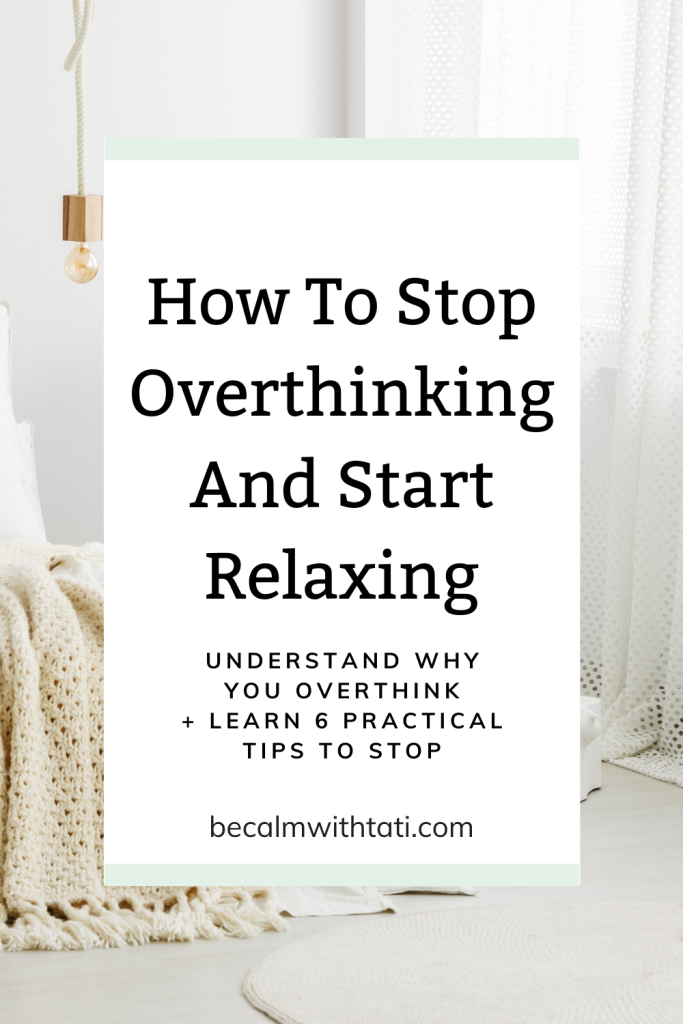
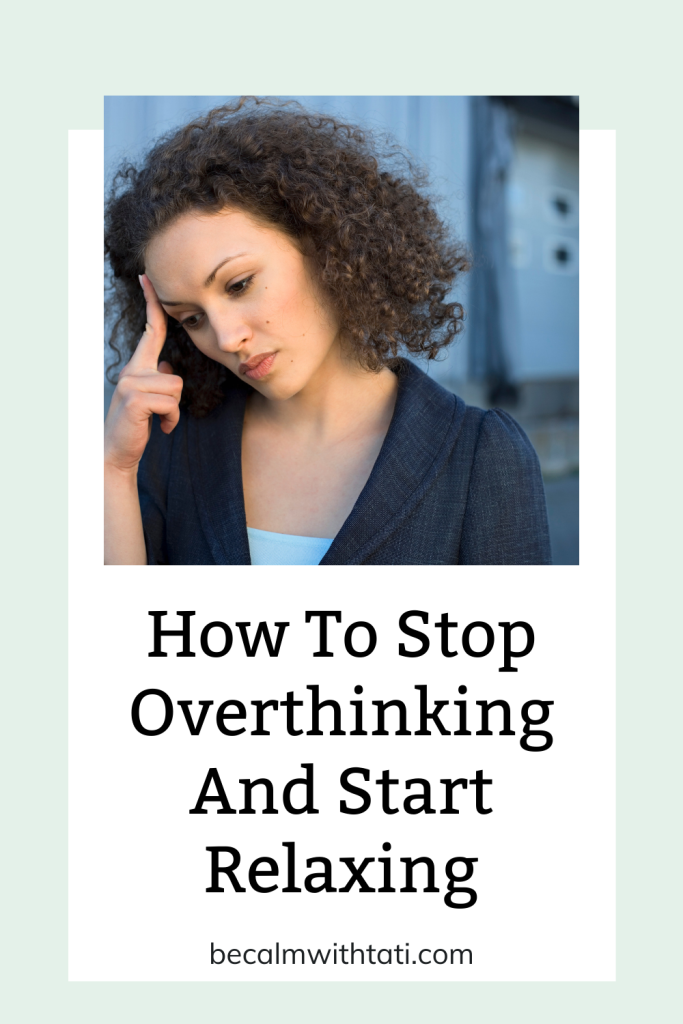




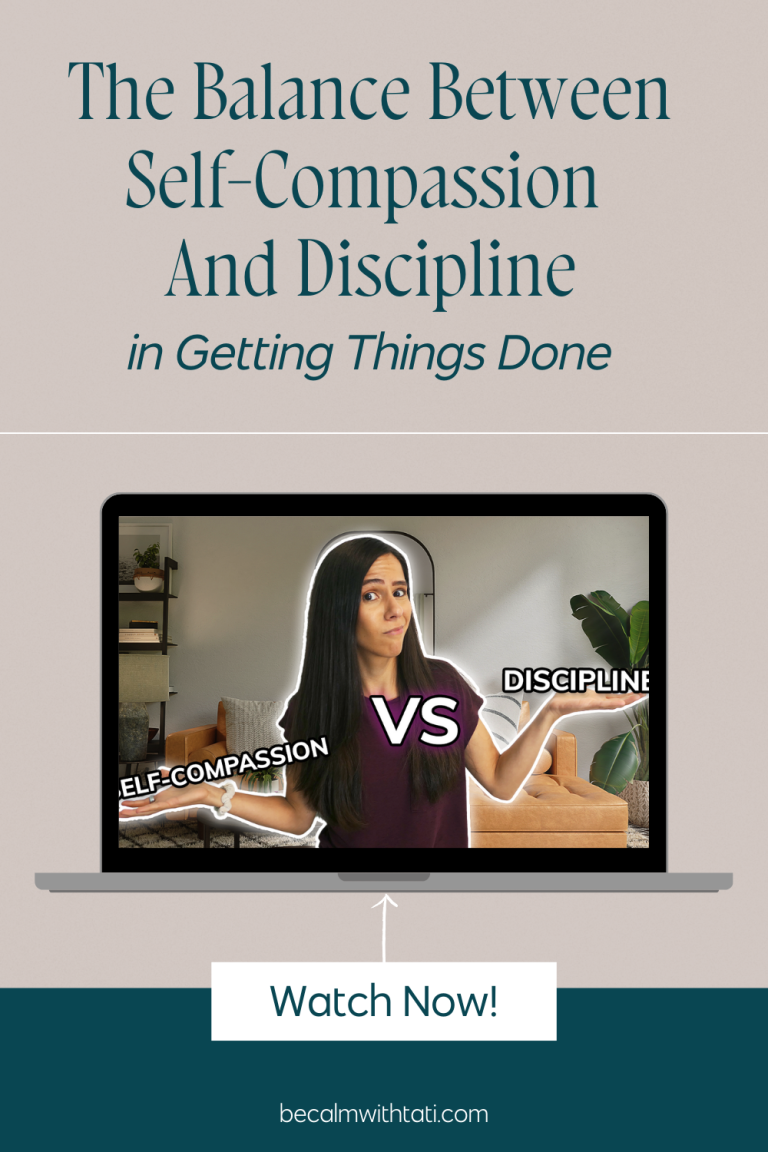
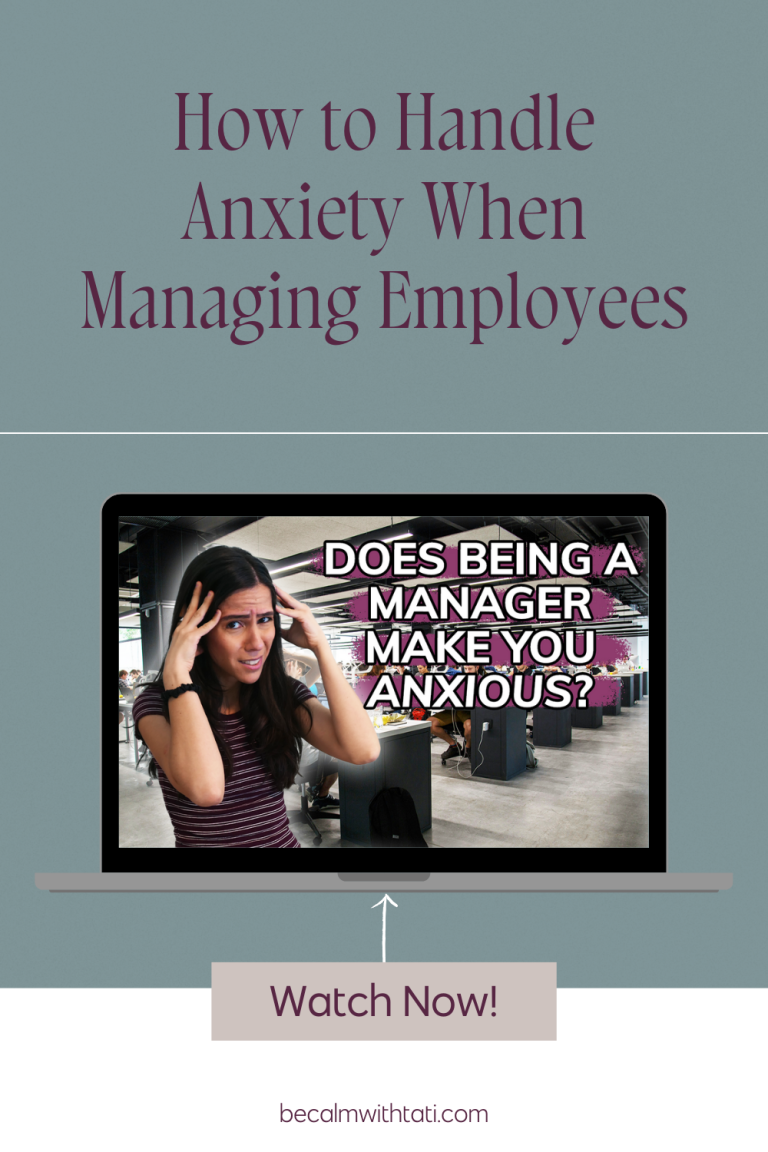

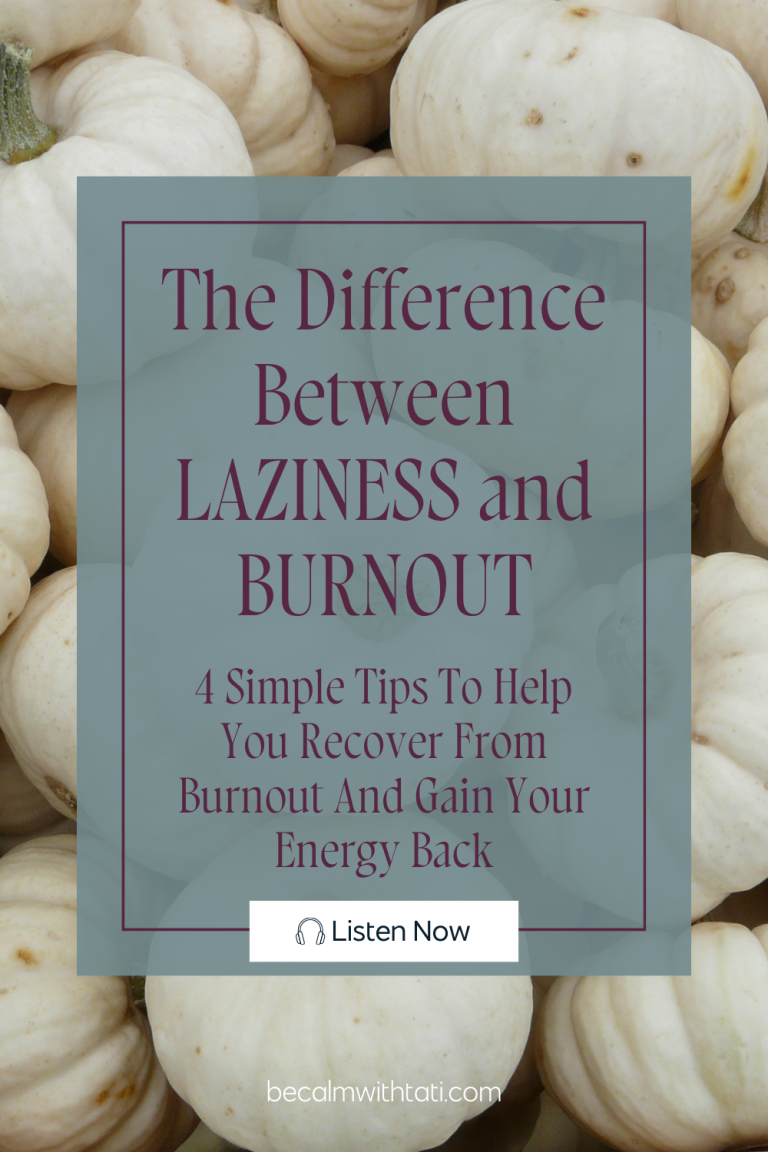






5 Comments
Thank you for the valuable knowledge about HOW TO STOP OVERTHINKING AND START RELAXING. I fall in love with your content.
Thank you so much, Lokesh! I am glad you are finding my content helpful.
I have read all this content, I like it, it has given me more information,
Thank you Pradyot!